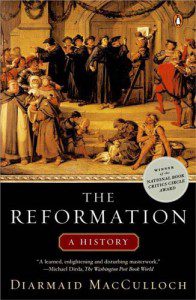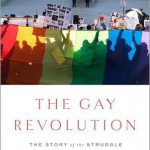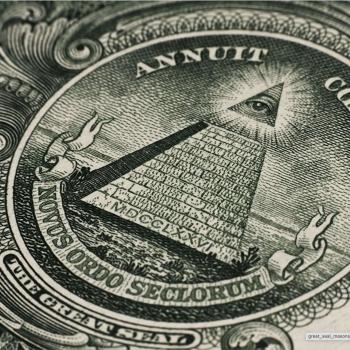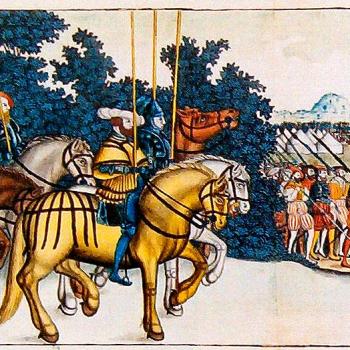In nine days British voters will determine if their country remains a member of the European Union, as it’s been since 1973. (If you’re not familiar with the details of this referendum, the BBC can bring you up to speed.) Though British Christians are no longer a majority in what prime minister David Cameron insists is a “Christian country,” they may make the difference in a tightly contested campaign that has recently swung in the direction of “Brexit.”
Studying the run-up to the 1975 referendum that ratified British membership in the European Economic Community (67% voted to stay), historian Philip Coupland found that “there was a very definite bias in support of the ‘yes’ campaign among Church elites.” But also, “that in the Churches, as elsewhere in the country, there was a substantial body of opinion that opposed membership or was at least unconvinced but was neither bigoted nor mad” (Britannia, Europa and Christendom, p. 193, 198).
Does that also describe the 2016 Brexit campaign? While many religious leaders again support the pro-Europe position, British Christians — like the larger population — seem more conflicted than they were in 1975.
The leader of the Church of England, archbishop of Canterbury Justin Welby, has remained neutral on the campaign (“I don’t think there is one correct Christian view, one way or the other”), but his two predecessors have publicly staked out opposing positions.
- “Faith is about integration and building bridges, not about isolation and erecting barriers,” wrote Rowan Williams and other Christian, Jewish, and Muslim leaders in a May 28 letter that argued that poverty, climate change, and other challenges “can only be addressed in a European, and indeed a global, context.”
- Two weeks earlier, George Carey had argued that “the relationship with the EU is not a marriage. It is a treaty which can be replaced by a better treaty. So there should be no squeamishness about unity, peace and harmony. Many countries contribute to brotherly fellowship and international peacemaking without surrendering their democratic controls.” Carey even appealed to the story of Exodus: “To leave Egypt and face the unknown consequences was not immediately an attractive option. But the voice of God cried out, ‘Let my people go.'”
Leaders of the Church of Wales and Church of Scotland have come out against Brexit, as has Cardinal Vincent Nichols, the president of the Catholic bishops’ conference for England and Wales: “There is a long tradition in Christianity and Catholicism in particular of believing in holding things together. So the Catholic stance towards an effort such as the EU is largely supportive.” Nichols feared that quitting the EU would only raise “more complex problems”; likewise, Catholic bishops in Northern Ireland warned that Brexit would strain cross-border relations with the Republic of Ireland.

Meanwhile, a Protestant church in Belfast made news for its pro-Brexit mural, complete with a reference to the Book of Revelation: “Then I heard another voice from heaven saying, ‘Come out of her, my people, so that you do not take part in her sins, and so that you do not share in her plagues” (18:4). The prospect of renewed attempts to link Daniel 7 and Revelation 13-14 to the EU prompted historian Martyn Whittock to respond, “I am old enough to remember Late Great Planet Earth (1970) and to have once been influenced by it… But Hal Lindsey clearly got it wrong, and it’s about time we stopped perpetuating the error.” Instead, Liberal Democrat politician Sal Brinton cited another passage of Revelation — the image of a “great multitude…from every nation, from all tribes and peoples and languages” (7:9) — to argue for remaining: “As a Christian I want us to be part of that. Wanting to remain in the EU is saying there are benefits of remaining together.”
But it’s conflicting appeals to the past, not the future, that may be of particular interest to readers of this blog.
Leaders of the right-wing UK Independence Party have long argued that Brexit is necessary to preserve Britain’s “Judaeo-Christian heritage” from the secularity of Brussels. But as part of a larger argument for fulfilling Britain’s historical obligations to the EU, John Sentamu, archbishop of York, appealed to Britain and Europe’s “common Christian heritage and what this means and has created in practice….”
While one Baptist pastor on the Leave side cast the decision as a “purely political matter” having no “overriding theological expedient,” the British general secretary of the European Baptist Federation, Tony Peck, not only invoked the vision of “the Christian founding fathers of the EU” (presumably, he meant Christian democrats like Robert Schuman, Konrad Adenauer, Alcide de Gasperi, and Joseph Bech) but made explicit appeals to Baptist history:
Our English Baptist roots stress the interdependence of churches, not the rugged independence that in some cases came later. From earliest times we have espoused the notion that as churches we need to help and counsel of one another and that this is a necessary part of being a local church. That in turn stirs within us a more genuinely inclusive attitude of connectedness and belonging that goes beyond our churches to the wider world.
Against “BeLeavers” who worry that European law has opened Britain to growing numbers of non-Christian immigrants, Peck called on Baptists to “look back to 1612 and the ground-breaking conviction of Thomas Helwys for religious rights and freedom for all, including those of other faiths and specifically Muslims.”
Then there’s Giles Fraser’s attempt to connect Brexit to the Protestant Reformation… An Anglican priest who is co-chair of the Christians for Britain movement, Fraser used his Guardian column to locate “the intellectual roots of Euroscepticism” in the Reformation’s “across-the-board protest at the elitist and centralising philosophy of the Roman church.” Noting research that suggests less skepticism of the EU in historically Catholic countries, Fraser contended that
Conversely, in Protestant countries, the EU still feels a little like some semi-secular echo of the Holy Roman empire, a bureaucratic monster that, through the imposition of canon law, swallows up difference and seeks after doctrinal uniformity. This was precisely the sort of centralisation that Luther challenged, and resistance to it is deep in the Protestant consciousness.
Here it’s hard not to hear echoes of an old theme in British Euroscepticism. For a “significant minority” of British Christians in the 1975 referendum, observes Philip Coupland, “the Treaty of Rome symbolised the mounting threat of the Catholic Church to the heritage of the Reformation” (Britannia, Europa and Christendom, p. 197). And Coupland points out that the 1975 version of this argument was much tamer (and ultimately less effective) than the anti-Catholic rhetoric present after World War II, when Britain first flirted with European integration.
 In any event, Fraser’s column inspired a rebuke from the author of a widely acclaimed history of the Reformation. Diarmaid MacCulloch found “no idea of little Englandism” in British reformers like Thomas Cranmer, who was inspired by European reformations like the one in Strasbourg, where Martin Bucer and his colleagues “were especially energetic in their efforts to stop Protestants across Europe quarrelling.” MacCulloch positioned the other side in the current debate as the true heirs of Cranmer, Bucer, Luther, et al.:
In any event, Fraser’s column inspired a rebuke from the author of a widely acclaimed history of the Reformation. Diarmaid MacCulloch found “no idea of little Englandism” in British reformers like Thomas Cranmer, who was inspired by European reformations like the one in Strasbourg, where Martin Bucer and his colleagues “were especially energetic in their efforts to stop Protestants across Europe quarrelling.” MacCulloch positioned the other side in the current debate as the true heirs of Cranmer, Bucer, Luther, et al.:
…it is the Remain camp which represents the European and British Reformations, not Brexiteers. Remainers are the people who resist breaking the natural, wider ties in our continent. True, they know the system needs radical reform – and that was the starting point for many Protestants attacking the old Church, including Luther himself in 1517 – but once the corruption and the mistakes have been remedied, the prospect then as now is to look to a new continent-wide unity, not a muddle of division and weakness.
So which arguments have been most persuasive? A poll conducted in February indicated that practicing Christians would be more likely than any other religious group to vote for Brexit, but we’ll have to wait until the 23rd to know for sure.
You can read more from me at The Pietist Schoolman.














